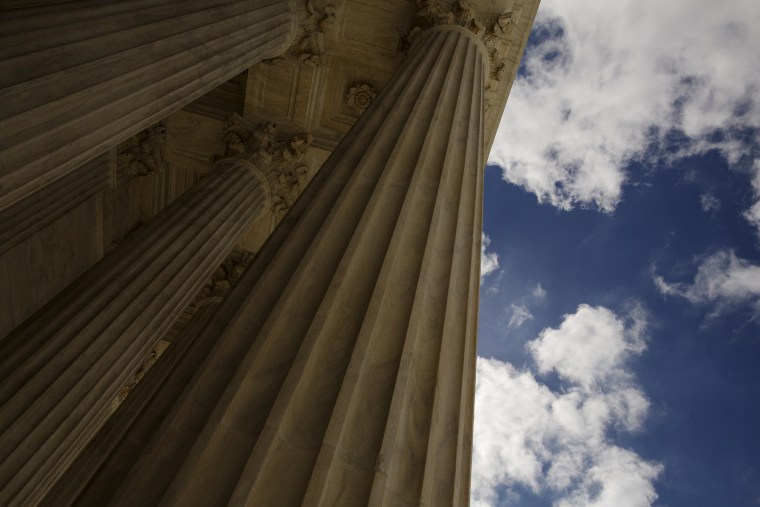Slate's Dahlia Lithwick said something on the show last night that stuck with me. Reflecting on what Donald Trump's opponents will need to do to prevent him from replacing Justice Anthony Kennedy with a far-right ideologue, Lithwick explained, "They are going to need behind them all the folks who didn't prioritize the Supreme Court in 2016 when there was an open seat -- and two octogenarians sitting on the court -- and Democrats just didn't prioritize the court. Republicans did."
There's some compelling evidence to bolster the observation. The Washington Post reported this week:
While President Trump was campaigning, he was well aware that a lot of Republicans were not particularly enthusiastic about his candidacy, so as 2016 wound on, he began embracing a very specific appeal: Remember the Supreme Court."We don't have four more years," he said in late September of that year in Wisconsin. "They'll start appointing justices of the Supreme Court. Remember that, Supreme Court." Over and over, his closing pitch to voters involved some variation of "we're going to appoint justices to the Supreme Court who will uphold and defend the Constitution of the United States." [...]It worked. Exit polling from the 2016 election shows that a majority of those who saw the president's ability to nominate justices to the high court as the most important factor in their vote backed Trump.
Remember, in 2016, there was already a Supreme Court vacancy, thanks to Justice Antonin Scalia's passing and Senate Republicans' blockade against Judge Merrick Garland. The choice for Americans couldn't have been clearer: with four justices appointed by Republican presidents, and four justices appointed by Democratic presidents, the winner of the 2016 election would decide whether the left or right was ascendant on the high court.
For progressives, it was an extraordinary opportunity to reclaim the court's majority, with consequences that would be felt for decades on countless issues of significance.
But on Election Day, it was Republicans who prioritized the court -- and the right that is now reaping the rewards.
This dynamic did not unfold overnight. After the Warren Court's rulings on civil rights, and the Berger Court's rulings on abortion and religion, the Supreme Court became a galvanizing issue across much of the right. Activists and organizations decided that changing the makeup of the judiciary was fundamental to the conservative agenda.
Indeed, throughout much of 2016, more than a few Republican critics of Donald Trump tolerated his most offensive antics, not just out of partisan loyalty, and not just because of the party's obsession with tax breaks for the wealthy, but because they desperately wanted to change the Supreme Court.
And now they're doing exactly that.
What I'm eager to see is whether the left responds in kind -- whether the Roberts Court has the same effect on progressive voters as the Berger Court had on conservative voters.
If not, I'm hard pressed to imagine what more it would take.
